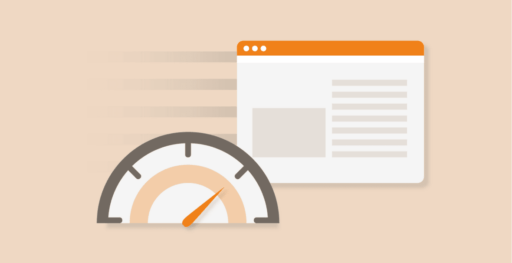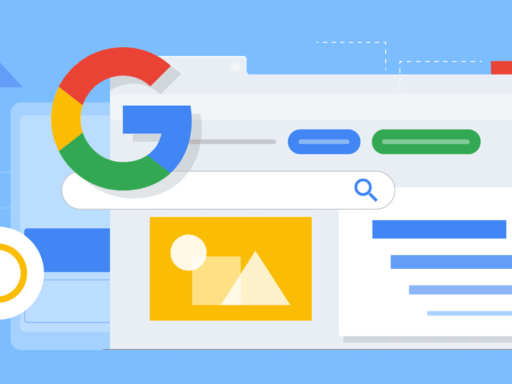When it comes to optimizing your website for search engines, there are several factors to consider. One crucial element that often gets overlooked is site speed. In this article, we will delve into the impact of site speed on SEO and why it should be a priority in your optimization efforts.
Key Takeaways:
- Site speed is a crucial factor in search engine optimization (SEO).
- Faster-loading pages have historically ranked higher in search results.
- While there is debate about the extent of page speed’s influence on rankings, it is still considered a ranking factor by Google.
- Page speed affects user experience, bounce rates, and conversion rates, making it essential for a successful website.
- Factors such as hosting service, file size, code quality, and media content can impact your page speed.
The Claim: Page Speed Is A Ranking Factor
In the ever-evolving world of SEO, one of the debates that has sparked considerable discussion is whether page speed is a ranking factor. Past evidence suggests that Google did consider website speed as a factor in search engine rankings. In fact, back in 2010, Google announced its intention to incorporate site speed into its search rankings algorithm. This development prompted web developers and SEO experts to focus on optimizing page speed for improved search visibility.
Understanding the significance of page speed as a ranking factor is crucial for webmasters and SEO professionals. It has the potential to impact both desktop and mobile search results, making it a vital aspect of any SEO strategy. A deeper exploration of this topic will shed light on the relationship between page speed and its influence on search engine rankings.
Current Evidence Against Page Speed As A Ranking Factor
In 2023, Google made a significant update to its ranking system, removing the “page experience” system, which caused some speculation among the SEO community regarding the impact on page speed as a ranking factor. However, Google has clarified that good page experience signals are still rewarded by its algorithms. While page speed remains important for user experience, it may not directly influence search rankings if the content itself has issues.
Relevance continues to be the top ranking factor in Google’s algorithm. Even though page speed might not hold the same weight as before, it still plays a significant role in creating a positive user experience and improving overall website performance.
Yes, Page Speed Is Still A Ranking Factor
Despite the changes in Google’s documentation, page speed remains a confirmed ranking factor for search results. While its impact may vary, it is still considered part of evaluating page experience. Relevance continues to be the primary ranking factor, with page speed playing a crucial role in creating a positive user experience.
How Page Speed Affects User Experience
Page speed has a significant impact on user experience. When a web page loads quickly, users are more likely to stay engaged and explore the site further. On the other hand, if a page takes too long to load, users may become frustrated and abandon the site, resulting in higher bounce rates. A fast page speed ensures a smooth and enjoyable browsing experience, contributing to increased user satisfaction and interaction.
The Importance of Page Speed as a Ranking Factor
Google values delivering relevant and high-quality content to its users. Page speed is a crucial factor in achieving this goal. By prioritizing fast-loading pages, Google enhances the overall search experience for users. Websites that prioritize page speed demonstrate a commitment to providing exceptional user experiences, which is rewarded by search engine ranking algorithms.
| Factors That Affect Page Speed | Optimization Strategies |
|---|---|
| Hosting service | Optimize server response time |
| Website theme | Use lightweight themes |
| File size | Compress images and optimize file formats |
| Code quality | Minifying HTML, CSS, and JavaScript |
| Use of images, videos, plugins, and redirects | Reduce reliance on heavy media elements and unnecessary redirects |
Optimizing page speed contributes to better search rankings, improved user experience, and increased conversions. By focusing on page speed as a ranking factor, website owners can enhance their overall SEO strategy and provide a seamless browsing experience for their users.
What Is Google PageSpeed Insights?
Google PageSpeed Insights is an invaluable online tool that allows you to analyze and optimize your website’s performance. Whether you’re an SEO professional or a website owner, this tool provides you with a general score and detailed information about factors affecting your page speed. By understanding these factors, you can make informed decisions about optimizing your site for optimal speed and user experience.
When you enter your website’s URL into Google PageSpeed Insights, it measures the performance of both the mobile and desktop versions of your site separately. This is important because connection speeds and user expectations often differ between devices. By assessing your website on different platforms, you can ensure that both mobile and desktop users have an exceptional experience on your site.
Benefits of Using Google PageSpeed Insights
- Gain valuable insights: Google PageSpeed Insights provides you with a comprehensive report on your website’s performance, highlighting areas where improvements can be made.
- Optimize for speed: By identifying factors that affect your page speed, such as large image files or unnecessary JavaScript, you can make the necessary optimizations to improve loading times.
- Improve user experience: Faster loading times lead to a better user experience, keeping visitors engaged and reducing bounce rates. In turn, this can improve your site’s overall SEO performance.
- Stay ahead of the competition: By utilizing PageSpeed Insights, you can gain a competitive edge by ensuring your website loads quickly and efficiently, giving users a seamless browsing experience.
Google PageSpeed Insights is an essential tool for anyone looking to improve their website’s performance and optimize it for search engines. By using this powerful tool, you can enhance your site’s speed, user experience, and ultimately, its search engine ranking.
How Important Is Page Speed for SEO?
Page speed is a crucial factor that significantly impacts SEO. It directly affects user experience, conversion rates, and bounce rates. Various studies have shown that users tend to leave a website if it takes too long to load, leading to higher bounce rates. On the other hand, a fast-loading page enhances user experience and increases the chances of conversion.
Google, being the dominant search engine, prioritizes delivering fast and relevant pages to users. As a result, page speed has become an important ranking factor in search engine results. Websites that load quickly are more likely to be ranked higher and gain better visibility.
To understand the importance of page speed for SEO, let’s take a look at the key factors affected by it:
- User Experience: A fast-loading website provides a smooth and seamless browsing experience. Users can access the desired information or complete their intended action quickly and effortlessly. This positive user experience can lead to increased engagement, longer session durations, and a higher likelihood of return visits. It ultimately contributes to improving your search engine rankings.
- Conversion Rates: Slow page speed can have a detrimental effect on conversion rates. If visitors face delays in loading your website, they may lose interest or trust in your brand, resulting in abandoned shopping carts or form submissions. A faster page speed can significantly improve conversion rates by reducing friction and providing a seamless conversion process.
- Bounce Rates: Bounce rate refers to the percentage of visitors who leave your website after viewing only one page. High bounce rates can negatively impact your SEO efforts and indicate poor user engagement. Slow page speed is often a leading cause of high bounce rates. By optimizing page speed, you can reduce bounce rates, retain visitors, and encourage them to explore your website further.
Considering the impact of page speed on user experience, conversion rates, and bounce rates, it is evident that prioritizing page speed optimization is essential for SEO success. By ensuring fast-loading pages, you can enhance user satisfaction, boost engagement, and improve your search engine rankings.
Factors That Affect Your Page Speed
Page speed is a critical aspect of website performance and user experience. Several factors can impact the speed at which your webpages load. By understanding and optimizing these factors, you can significantly improve your page speed and overall website performance.
1. Hosting Service
The hosting service you choose can have a direct impact on your page speed. A reliable and high-performing hosting provider with robust server infrastructure and optimized server response times can help improve your website’s loading speed.
2. Website Theme
The theme you select for your website can affect its performance. Choose a lightweight and well-coded theme that is optimized for speed. Avoid themes with excessive plugins and unnecessary features that can slow down your site.
3. File Size
The size of your web files, including HTML, CSS, JavaScript, images, and videos, can significantly impact your page speed. Compressing and optimizing these files can reduce their size and improve loading times.
4. Code Quality
Well-structured and efficient code can contribute to faster page loading. Clean coding practices, minification, and eliminating unnecessary code can help improve your page speed.
5. Images, Videos, Plugins, and Redirects
The use of large image and video files, excessive plugins, and unnecessary redirects can negatively impact your page speed, leading to slower loading times. Optimize images and videos, use only essential plugins, and minimize redirects to improve your site’s performance.
By implementing optimization strategies for each of these factors, you can enhance your page speed, provide a better user experience, and ultimately improve your website’s performance in search engine rankings.
How to Check If Your Page Loads Slowly
If you want to assess the page speed and identify areas for improvement, there are various tools available to help you. Some of the popular ones include:
Google PageSpeed Insights
Google PageSpeed Insights is a valuable online tool that analyzes web performance. It measures different performance metrics of your website and provides detailed suggestions for optimizing page speed. It assesses both the mobile and desktop versions separately, taking into account the different connection speeds and user expectations.
Pingdom
Pingdom is another reliable tool for checking page speed. It provides a comprehensive performance report that includes load time, performance grade, and suggestions for improvement. With Pingdom, you can closely monitor your website’s speed and understand how it compares to industry benchmarks.
GT-Metrix
GT-Metrix is a powerful tool that analyzes your website’s speed and performance. It not only measures the page load time but also provides in-depth insights into how your website performs in various locations and devices. It gives recommendations for optimizing your page speed by highlighting specific areas that need attention.
In addition to these individual tools, there are also bulk checking tools available that allow you to analyze multiple pages at once. These tools can be extremely helpful when you want to assess the overall performance of your website and identify any common issues that need to be addressed.
To ensure your website is providing the best user experience and ranking well in search engines, regularly checking your page speed and making necessary optimizations is essential. Utilize these tools to diagnose any slow-loading issues and enhance your website’s overall performance.
| Tool | Pros | Cons |
|---|---|---|
| Google PageSpeed Insights | – Provides a detailed breakdown of performance metrics – Offers specific optimization suggestions – Analyzes mobile and desktop separately | – Focuses on Google’s performance criteria only |
| Pingdom | – Measures page load time and performance grade – Provides recommendations for improvement – Offers real-time monitoring | – May have limited insights compared to other tools |
| GT-Metrix | – Provides comprehensive insights into website performance – Offers recommendations for optimization – Analyzes performance in different locations and devices | – Some advanced features may require a paid plan |
Optimize Your Site for Better PageSpeed Insights Score
To improve your PageSpeed Insights score and enhance your website’s performance, there are several optimization techniques you can implement:
- Server response time optimization: Reduce server response time by optimizing server configurations and utilizing caching techniques.
- Image compression: Compress images without compromising quality to reduce file size and improve loading speed.
- Optimizing HTML and CSS structure: Minify and optimize your HTML and CSS code to eliminate unnecessary elements and improve code efficiency.
- Minification and script compression: Minify and compress JavaScript and CSS files to reduce their size and improve loading speed.
- Implementing cache policies: Utilize caching techniques such as browser caching and server-side caching to serve cached content and reduce server load.
- Using lightweight themes and plugins: Choose lightweight themes and plugins that don’t compromise performance and avoid unnecessary bloat.
- Utilizing a content delivery network (CDN): Distribute your website’s assets across a network of servers to minimize latency and improve loading speed for users around the world.
By implementing these optimization techniques, you can improve your PageSpeed Insights score and provide a faster and more responsive browsing experience for your visitors.
Conclusion
In conclusion, site speed has a significant impact on SEO and should not be overlooked in website optimization efforts. By optimizing your page speed, you can enhance user experience, increase conversion rates, and improve search rankings. While it may not be the sole determining factor, page speed plays a vital role in creating a positive user experience and should be prioritized.
Fast-loading pages are favored by search engines, as they not only provide a better user experience but also contribute to higher engagement and lower bounce rates. Users are more likely to leave a website if it takes too long to load, leading to missed opportunities for conversions.
Therefore, it is crucial to assess and optimize your site speed regularly. Use tools like Google PageSpeed Insights, Pingdom, or GT-Metrix to identify areas for improvement. Consider factors such as hosting service, website theme, file size, code quality, and media elements like images and videos. Implement optimization techniques such as server response time optimization, image compression, code minification, and leveraging a content delivery network (CDN).
By prioritizing site speed and continuously optimizing it, you can enhance user experience, boost your SEO impact, and ensure your website performs at its best. Remember, a fast and responsive website not only benefits your users but also sets you apart from competitors in the online space.
FAQ
Is page speed a ranking factor for SEO?
Yes, page speed is considered a ranking factor for search engine optimization (SEO). Faster-loading pages have been ranked higher in the past and are still an important factor in evaluating page experience.
Does Google still consider page speed as a ranking factor?
Yes, despite some changes in Google’s documentation, page speed remains a confirmed ranking factor for search results. While its impact may vary, it is still considered part of evaluating page experience and creating a positive user experience.
How can I assess my page speed?
You can use tools like Google PageSpeed Insights, Pingdom, and GT-Metrix to assess your page speed. These tools measure performance metrics and provide suggestions for optimizing page speed. Bulk checking tools are also available to analyze multiple pages at once.
What factors can affect page speed?
Several factors can affect page speed, including hosting service, website theme, file size, code quality, and the use of images, videos, plugins, and redirects. Implementing optimization strategies for each of these factors can significantly improve page speed and overall website performance.
How important is page speed for SEO?
Page speed is crucial for SEO as it affects user experience, conversion rates, and bounce rates. Users are more likely to leave a page if it takes too long to load, resulting in higher bounce rates. A fast page improves user experience and increases the chances of conversion, ultimately influencing search rankings.
How can I optimize my site for better PageSpeed Insights score?
To improve your PageSpeed Insights score, consider techniques such as server response time optimization, image compression, optimizing HTML and CSS structure, minification and script compression, implementing cache policies, using lightweight themes and plugins, and utilizing a content delivery network (CDN).





